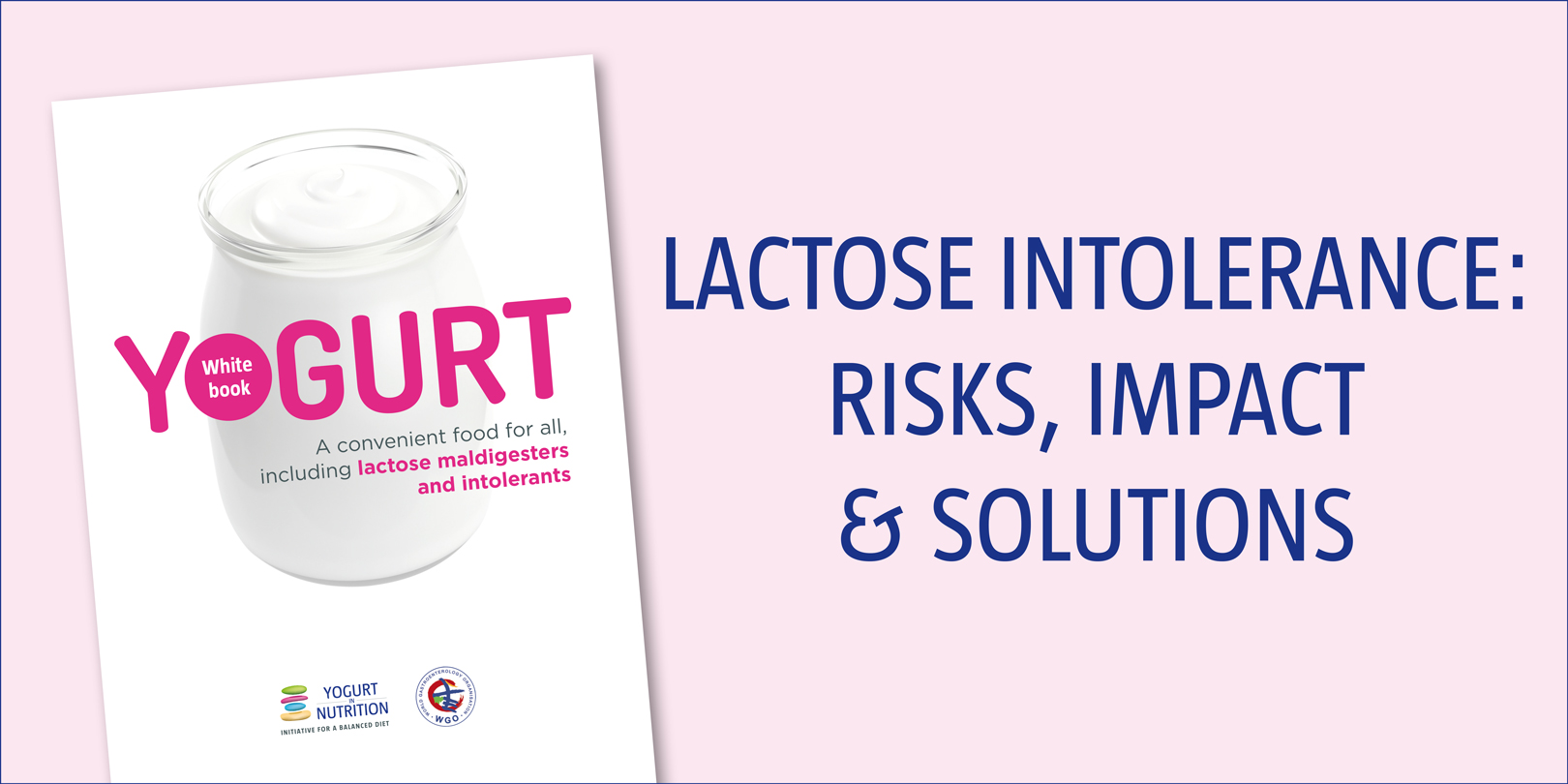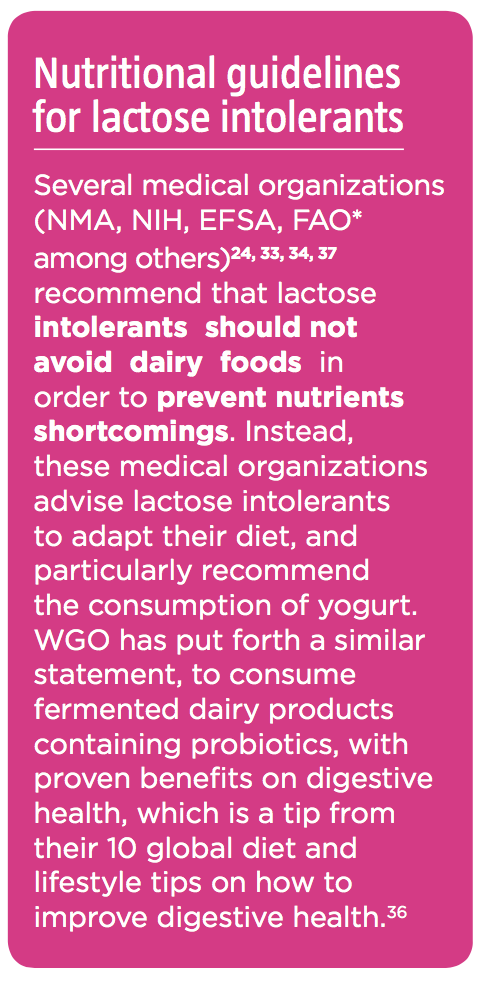However, because self-diagnosed or even diagnosed lactose intolerance can lead to an unfounded limitation or avoidance of dairy products, lactose intolerance could result in nutrient shortcomings, such as low calcium intake, which may result in adverse health effects. (23, 24, 28-30)
Nutritional recommendations for lactose intolerants
In order to consume the recommended daily intake of calcium among others, lactose intolerants can consume other forms of dairy products such as cheeses that contain low or no lactose, and more specifically yogurts that contain live bacteria, which improve the digestion of the lactose contained in yogurt. (24, 32)
Lactose intolerants can also consume food containing lactose in modest amounts, up to 12 g in one intake or up to 24 g (the equivalent of one or two bowls of milk, respectively), preferably in fractioned amounts across the day, during meals, without triggering any symptoms. (22, 33, 34)
The regular consumption of lactose-containing food by lactose maldigesters could even lead to colonic adaptation by the gut microbiota and may allow them to tolerate more lactose. (14)
Lactose-free food or total avoidance of dairy food is only needed for rare infants with congenital lactase deficiency. (6)
Nevertheless, the elimination of a particular type of food could lead to nutritional imbalances and may have significant health consequences.
*NMA (National Medical Association), NIH (the National Institutes of Health, a part of the U.S. Department of Health and Human Services), EFSA (the European Food Safety Agency), WGO (the World Gastroenterology Organization) and FAO (the Food and Agriculture Organization of the United Nations).
References:
6. Vandenplas, Y et al. Asia Pac J Clin Nutr 2015;24 Suppl 1:S9-13.
14. Szilagyi, A. Nutrients 2015;7:6751-79.
22. Suarez, FL et al. N Engl J Med 1995;333:1-4.
23. Suarez, FL et al. Am. J. Clin. Nutr., 1997, 65 1502-6.
24. Suchy, FJ et al. NIH Consens State Sci Statements 2010;27:1-27.
28. Black, RE et al. Am J Clin Nutr 2002;76:675-80.
29. Heaney, RP. J Am Coll Nutr 2000;19:83S-99S.
30. Heaney, RP. J Am Coll Nutr 2009;28 Suppl 1:82S-90S.
31. EFSA Panel on Dietetic Products, EFSA Journal 2010;8.
32. 31. EFSA Panel on Dietetic Products, EFSA Journal 2010;8.
33. Bailey, RK et al. J Natl Med Assoc 2013;105:112-27.
34. EFSA Panel on Dietetic Products, EFSA Journal 2010;8.
36. WGO. World Digestive Health Day. 10 global diet and lifestyle tips on how to improve digestive health. May 29, 2012.
37. Muehlho, E et al. Milk and products in human nutrition, 2013.






